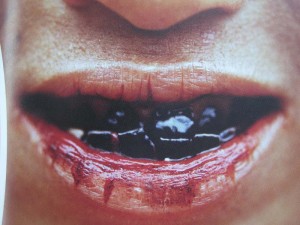What is a Betel Nut?
The betel palm is a species of palm tree that is found mostly in Asian countries. It has a seed which is known as the betel nut. Asian and Indian natives use the betel nut in much the same way that people in Western countries use chewing tobacco and snuff. It contains chemicals that are similar to nicotine. Sometimes the betel nut is even mixed with tobacco or other spices to improve its taste.
Both men and women in Asian countries enjoy chewing the betel nut. Field workers and other rural residents often chew it for its mild painkilling effect and its appetite suppression effects. Betel nut is often sold as a homeopathic cure for indigestion and is used in some Asian toothpaste. Betel nut acts as a mild stimulant, causing a warming sensation in the body and a slightly heightened alertness.
Betel nut does have some negative health effects. It is a known carcinogen. Chewing it habitually can cause a number of forms of cancer, particularly in the mouth, nose, throat, esophagus, and stomach. Long term chewing of betel nut can stain the teeth and create a number of other health problems. Another concern of Asian governments regarding the betel nut is that many chewers often spit out the remnants of the nut on public streets, raising concern about sanitation. However, numerous attempts as prohibiting or regulating the betel nut have been unsuccessful.
A related concern in Asian countries regarding the betel nut is the sexual exploitation of minors. Local shops often employ young, attractive to promote the betel nut. These girls are often skimpily clad and the promotion is overtly sexual. The girls are also often underage. Working in this industry is often viewed as an entry level position into the world of the sex industry, and some girls go on to pornography or prostitution.
Betel nut is not illegal in the United States, but very few places sell it. The medicinal version can sometimes be found in Asian grocery stores. It is not widely used in the United States. However, dried, ground betel nut is readily available on the internet. However, US customs enforces a prohibition against import of betel nut in the United States, so Internet shipments may be detained. Sometimes, shipments are misnamed in order to pass through Customs.
Expectant mothers are discouraged from using the betel nut. It can cause an increase in the risk of adverse outcomes in pregnancy. The effects of betel nut are similar to those reported for mothers who consume alcohol or tobacco during pregnancy. The most common adverse outcomes are low birth rate, reduced birth length, and early term labor.
There is some evidence that betel nut can have psychoactive effects, especially when the nuts are chewed with agricultural lime. The lime activates the betel nut. However, mixing betel nut with lime can cause the gums to become raw and inflamed. Betel nuts can also be brewed like coffee, rolled into cigarettes, or mixed with acacia gum, lime, and nutmeg. The leaf from the betel palm is also used as paper for rolling tobacco and herbs.
Sources:
http://www.wisegeek.com/what-is-a-betel-nut.htm
http://www.erowid.org/plants/betel/betel.shtml



